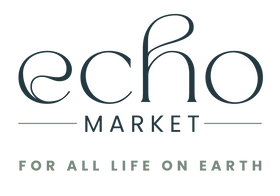What is Collagen, Anyway?
Collagen, often celebrated as the fountain of youth in beauty products, goes beyond skin deep. It is the most abundant protein in our bodies, forming the scaffolding that holds us together. As we age, our internal production of collagen diminishes, which can impact everything from the elasticity of our skin to the flexibility of our joints. Understanding the role of collagen and how to maintain its levels can significantly influence aging, athletic performance, and overall well-being. This comprehensive guide delves into the biological importance of collagen, its varied roles within the body, and the tangible benefits it offers.
What is Collagen?
Collagen is a powerhouse protein composed of amino acids wound together to form triple helices of elongated fibrils. It is a major component of bones, muscles, skin, and tendons and ensures the integrity, elasticity, and regeneration of our connective tissues. Collagen is a complex structural protein that makes up approximately 30% of the proteins within the body and 70 percent of the dry weight of skin. It’s composed primarily of three amino acids: proline, hydroxyproline, and glycine, which form a unique triple helix structure that is strong and flexible. This structure is the building block of the extracellular matrix in various connective tissues and plays a critical role in tissue regeneration.
Types of Collagen
There are 28 types of collagen found in human tissue, with Types I, II, and III being the most common:
- Type I: Predominates in skin, tendon, vasculature, organs, and bone (the main component of the organic part of bone).
- Type II: Mainly found in cartilage and known to promote joint health.
- Type III: Commonly located in reticular fibers, such as in the liver and bone marrow.

Health Benefits of Collagen
Skin Elasticity and Hydration
A study published in the Journal of Medical Nutrition & Nutraceuticals showed that participants who took a collagen supplement daily for eight weeks saw a 20 percent reduction in wrinkle depth around their eyes due to improved skin elasticity and hydration (Schunck, M., et al., 2016). Collagen helps the skin appear more youthful and healthy by boosting skin hydration and reducing fine lines and dryness.
Gut Health and Digestion
Collagen is critical for maintaining the strength and integrity of the gut lining. The amino acids found in collagen, such as glycine and proline, help to rebuild and strengthen the intestinal barrier. This is particularly important because a weakened gut barrier, commonly known as "leaky gut," can allow toxins and pathogens to enter the bloodstream, potentially leading to inflammation and other health issues.
Collagen has been shown to help reduce gut inflammation. Persistent inflammation in the gastrointestinal tract can lead to conditions like inflammatory bowel disease (IBD). The amino acids in collagen, such as glycine, have anti-inflammatory properties that can help manage and reduce this inflammation.
The amino acid glycine stimulates the production of stomach acid, which is crucial for proper digestion. Adequate stomach acid is necessary to break down food effectively, which can help prevent the feeling of heaviness and bloating after eating. Moreover, by aiding digestion, collagen helps in the absorption of nutrients that are essential for various bodily functions.
The amino acid glutamine, which is abundant in collagen, is another vital nutrient that promotes the healing of intestinal cells. It is often used as a supplement to help heal the gut lining in people suffering from leaky gut syndrome and other gastrointestinal disorders.
Joint and Bone Health
Collagen’s role in joint health is underscored by its ability to cushion and support the areas where bones meet, preventing the painful friction associated with arthritis and similar conditions. Supplementing with collagen has been shown to reduce joint pain and deterioration, particularly in athletes and the elderly (Benito-Ruiz, P., et al., 2009). It supports the repair of the joint matrix and can enhance joint flexibility, improving quality of life for those with chronic joint disorders.
Boosts Muscle Mass
Collagen contains glycine and arginine, two amino acids crucial in muscle formation and repair. A study from the British Journal of Nutrition revealed that collagen supplementation in combination with resistance training increased muscle mass and strength more than training alone in elderly men with sarcopenia (Zdzieblik, D., et al., 2015). This suggests that collagen can be a crucial component of muscle health, especially in aging populations.
Promotes Heart Health
Recent studies have illustrated collagen’s potential in reducing heart-related risks. It strengthens the arterial walls and prevents them from becoming brittle and prone to damage. According to research in the Journal of Atherosclerosis and Thrombosis, collagen supplements can help reduce artery stiffness and lower cholesterol levels, potentially reducing the risk of heart conditions (Tomosugi, N., et al., 2017).

How to Increase Your Collagen Intake
Dietary Sources
Including collagen-rich foods in your diet, such as bone broth or gelatin, provides direct protein sources. Simmered animal bones contain collagen that seeps into the broth, providing a rich source of this protein. Chicken skin, pork skin, beef, and fish are also direct sources of dietary collagen. While not high in collagen, dairy and eggs contain amino acids essential for collagen production in the body. Additionally, foods high in vitamin C can boost your body’s own collagen production; these include citrus fruits, peppers, and strawberries. Other vital nutrients that support collagen formation include proline, found in egg whites and dairy, and copper, found in nuts, shellfish, and some whole grains.
Supplements
For those looking to increase their collagen intake, hydrolyzed collagen supplements can be an effective option. These supplements have been broken down into peptides, which are more easily absorbed by the body. They can be added to foods or beverages as a powder or taken in capsule form. However, it’s important to choose supplements from reputable, ethical sources to ensure their efficacy and safety. Ancient Nutrition’s and Winged's grass-fed collagen products available at Echo Market have been vetted for their commitment to people and planetary health.
Collagen is a vital part of the body’s toolkit for maintaining health and vitality. Whether your goal is to maintain youthful skin, support joint and bone health, or improve muscle mass, collagen provides a valuable resource. By understanding the sources and benefits of collagen, as well as how to incorporate it into your diet, you can take proactive steps toward enhancing your holistic health and well-being. As with any supplement, consult with a healthcare provider to ensure it fits within your health regimen.
Sources:
- Schunck, M., Zague, V., Oesser, S., & Proksch, E. (2016). Dietary Supplementation with Specific Collagen Peptides Has a Body Mass Index-Dependent Beneficial Effect on Cellulite Morphology. Journal of Medical Nutrition & Nutraceuticals.
- Benito-Ruiz, P., Camacho-Zambrano, M. M., Carrillo-Arcentales, J. N., Mestanza-Peralta, M. A., Vallejo-Flores, C. A., Vargas-Lopez, S. V., Villacis-Tamayo, R. A., & Zurita-Gavilanes, L. A. (2009). A randomized controlled trial on the efficacy and safety of a food ingredient, collagen hydrolysate, for improving joint comfort. International Journal of Food Sciences and Nutrition.
- Zdzieblik, D., Oesser, S., Baumstark, M.W., Gollhofer, A., König, D. (2015). Collagen peptide supplementation in combination with resistance training improves body composition and increases muscle strength in elderly sarcopenic men: a randomized controlled trial. British Journal of Nutrition.
- Tomosugi, N., Yamamoto, S., Takeuchi, M., Yonekura, H., Ishikawa, S., Saito, M., Saito, Y., Imura, K. (2017). Effect of Collagen Tripeptide on Atherosclerosis in Healthy Humans. Journal of Atherosclerosis and Thrombosis.





Leave a comment